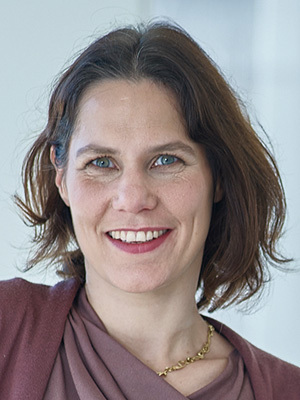
THIS IS ME
Every day, my job allows me to combine top notch research in embedded AI, educating the next generation through teaching, collaborating with industry to make our future better, and inspiring youngsters and girls to help build this future. This constantly enthuses me, and brought wonderful opportunities on my path, from a job at Intel Labs to a professorship at KU Leuven, from a scientific advising role at imec to strategically advising several startups. I love it all!
MORE FORMAL BIO
Marian Verhelst is a professor at the MICAS laboratories of KU Leuven and a research director at imec. Her research focuses on embedded machine learning, hardware accelerators, HW-algorithm co-design and low-power edge processing. She received a PhD from KU Leuven in 2008, and worked as a research scientist at Intel Labs, Hillsboro OR from 2008 till 2010. Marian is a member of the board of directors of tinyML and active in the TPC’s of DATE, ISSCC, VLSI and ESSCIRC and was the chair of tinyML2021 and TPC co-chair of AICAS2020. Marian is an IEEE SSCS Distinguished Lecturer, was a member of the Young Academy of Belgium, an associate editor for TVLSI, TCAS-II and JSSC and a member of the STEM advisory committee to the Flemish Government. Marian received the laureate prize of the Royal Academy of Belgium in 2016, the 2021 Intel Outstanding Researcher Award, and the André Mischke YAE Prize for Science and Policy in 2021. She is an IEEE fellow and holds 2 ERC grants (ERC Starting Grant Re-Sense, and ongoing ERC Consolidator Grant BINGO).

Key publications:
Other publications:
https://micas.esat.kuleuven.be/publications?search=marian+verhelst
H01L1A Digitale elektronica en processoren
D0H30A Elektronische schakelingen, systemen en informatieverwerking
H05D3A Computer Architectures
H05D5A Computerarchitecturen
H05H2A Compute Platforms for AI and Embedded Processing
X0B93A Digitale elektronica en processoren
H01Q6C P&O: elektrotechniek
H09L9A P&D Electronics and Chip Design
HBN76B Elektronische schakelingen, systemen en informatieverwerking
B3076T AI in Embedded Systems
H0O38A Computer Architectures and the HW/SW Interface
